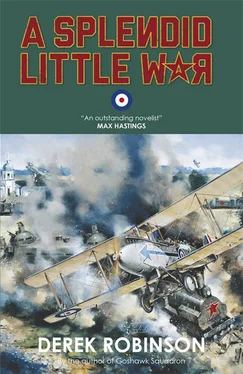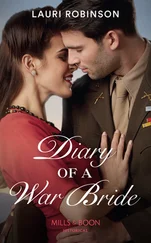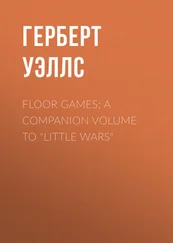She leant sideways and looked at his pieces and picked out a three and played it. “Do up your laces and then blow your nose,” she said. “You’re dribbling on my carpet.”
“I say, steady on, doc. Play the white man.”
“Marriage would suit you, Junk,” Borodin said. “You’re ugly and stupid and you talk a lot of bollocks, and somewhere there’s a girl, not very bright, just waiting for you to help her make lots of little Jessops.”
“You chaps have minds like sewers. One doesn’t want to get married for… for bedroom reasons.” Jessop rearranged his dominoes.
Maynard, feeling left out, said: “I was conceived in a hammock. In India.”
“I, on a grand piano,” Borodin said. “With the top down, of course.”
“In my case it was in a hot-air balloon,” Dextry said. “Over Windsor Castle. On a Thursday. Quarter to three. They rang all the church bells.”
They looked at Jessop. “I have nothing to add,” he said.
“Do you understand how the human plumbing arrangement works, Junk?” she asked. “See me tomorrow and I’ll draw you a picture.”
“That sounds fun,” Dextry said. “Can we all come?”
She played her last domino. “I win,” she said. “And heaven help the poor girls who marry you lot.”
*
The rain stopped as suddenly as it began. It woke the C.O., and he lay in bed wondering how soggy the airfield would be. But when he walked its length with his flight leaders, the turf was wet but firm. “Chalky soil,” Tusker Oliphant said. “Drains well. Last night’s rain was probably the first for ages. Ground just sucked it up.”
“Good,” the C.O. said. “Test flights. Then we’ll all go and find some Bolos to biff.”
The fires of Kursk had been doused, and the squadron flew low around its onion domes. There were five, clustered together, each topped by a cross. The domes were of different heights and styles: the tallest and biggest was gilded; some were sky-blue with gold stars; others were ribbed in blue and white, or cross-hatched like pineapples, or swirled upwards in bands of yellow and green. Dextry liked their cheerful splendour. He had seen too many grey Irish churches, hunched defensively against the rain, with nothing outside or inside to warm his heart except the threat of eternal fire and brimstone. The Russian God did not object to brightly striped onion domes. He seemed like a friendly God. Made you wonder why Russians had to be so bloody to each other all the time. Never smiled. Or, if they did, they made it look as if it was coming out of their wages. Oh, well. Nichevo .
Nobody in Kursk fired at the squadron, so Wragge turned north and followed the line.
After the storm came a battalion of small clouds. Showers fell from a few. Rainbows formed and glowed and faded and appeared elsewhere. The morning sun made shafts between the clouds that increased the theatrical effect, and the C.O. gave everyone a little innocent fun by climbing towards the biggest rainbow and swerving around the clouds. It made for good practice in formation-keeping. He was leading them down a shaft of sunlight when dirty brown blots of shellfire stained the sky. Some came so close that he could smell the cordite.
He grabbed the Very pistol and fired a red flare: the signal for the Nines to operate independently. The Camels broke to the right and the Nines banked sharp left, out of the spotlight. The C.O. hid his Flight above a cloud until he was sure the formation was intact. Then he side-slipped and they fell through the cloud and emerged, fast and getting faster. The gunners on the ground were slow to find them and their fire was wild, not helped by the fact that they were shooting from an armoured train moving at speed.
It was a power dive, a new experience in a Camel for Borodin, and he was conscious of the frantic flapping of a piece of loose fabric in the wing near his head. If the whole wing got stripped, half the controls would be lost and he would have about ten seconds to live. Maybe fifteen. Then Wragge pulled out of the dive and chased the train, and Borodin followed. Not dead yet, Wragge thought. Thank you, God.
He was below treetop level, where the big guns couldn’t reach him, but the train had machine guns. Borodin could see the muzzle-flash and the streaks of tracer. If there is a God, Wragge thought. And then the Camels were strafing the train from left and right. He saw it shake in his sights as the twin Vickers pounded away but he knew the tremors came from his Camel. His bullets wouldn’t dent armour plating. Only a very lucky shot would find a machine-gunner. The Camels climbed and banked and fled to safety. Let the bombers do their worst.
The strafe gave Tusker Oliphant time to get his Flight lined up behind him. He aimed to fly down the length of the train, where the bombs stood a better chance of hitting something. They went in at three hundred feet, high enough to escape their own bomb-blasts. The machine-gunners on the train had not been killed. Their tracers swam up, searching.
Oliphant’s approach seemed horribly slow to him, but that was because the train kept speeding away. And the Nine felt horribly vulnerable. That wide wingspan was easy to hit. So was he. Tracer flicked by and he remembered butterfly collections pinned through the body and the thought made his testicles try to crawl inside themselves. Then he reached the train, stuck his head into the thundering gale and tried to line up the target. It looked very narrow. He pulled the bomb toggles and hoped, gave the engine full throttle and banked so as to let his gunner vent his spleen on the Bolos. He’d survived. Full marks. Vent his spleen, he thought. Odd expression. How do you vent a spleen?
The others followed. Some Nines missed and the bombs threw up fountains of dirt. Some hit, but their bombs bounced off the armour. Some bombs found chinks in the armour and the explosions shook the train. But it charged on.
The last Nine was flown by Douglas Gunning and Michael Lowe. This was the most thrilling test they had faced since they came to Russia, a high-speed duel against a deadly enemy.
Gunning made his approach from wide of the right of the track to give Lowe freedom to rake the machine-gunners, who seemed to have multiplied. He saw the bombs that missed. Sometimes their blast rocked the train. “Blast!” he shouted. An extreme swear word in his home, rarely used. “Blast blast!” This wasn’t good enough. “Can do better. Must try harder.” He lost a hundred feet as he banked towards the train. Now the target was bigger, and right under him. Tough luck on poor old Lowe, unable to fire straight down.
Gunning had a brilliant idea. Bomb the engine. Lay his eggs in the firebox and blow the vitals to kingdom come! He went down another fifty feet and crept forward. More tracer zipped by. “Can’t catch me!” he shouted. Lowe got shot twice in the right thigh and felt as if he’d fallen into a fire and couldn’t get out. Gunning guessed his Nine was perfectly placed. Now or never. He dropped his bombs and they overshot his target by forty yards. Most of them killed a lot of wildflowers but one jammed itself under the steel track and blew it apart. The wheels of the engine charged into the gap and the rest of the armoured train followed it, capsizing as it charged into a ditch and disaster.
Gunning soared and swung into a wide half-circle to enjoy the spectacle of the wreck. “Did you see that, Michael?” he shouted, and looked back to exchange grins and saw instead a face full of pain. The most that Lowe could do was raise a gloved hand and the tearing wind blew streaks of blood from it. Gunning gave the engine full throttle and flew home. But Michael Lowe was dead when the ground crew lifted him from his cockpit.
*
The adjutant met the C.O. when he landed and told him the news. “And Lacey received this signal,” he said. It was from their new English-speaking liaison on Denikin’s staff. Red strongpoint resisting White advance. Please assist. The C.O. looked around, saw Dextry, and waved the signal. “We’re off again, Rex,” he shouted. “Refuel, rearm and bomb up. Just time for a wash and a bowl of soup.” To Dextry he said: “Where is he now?”
Читать дальше











